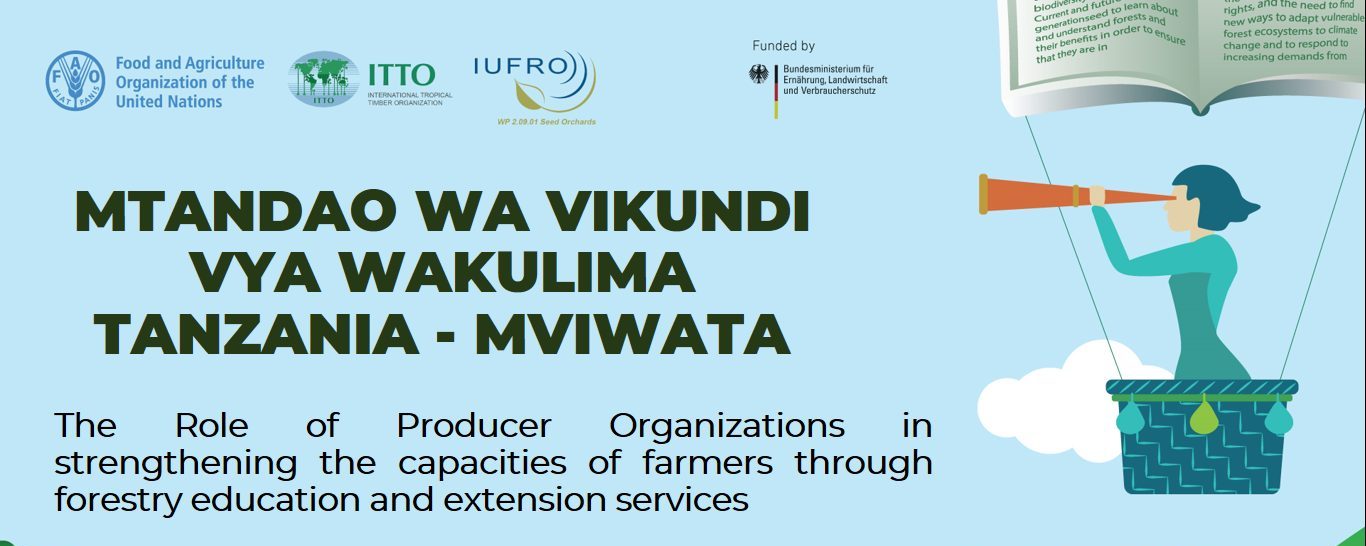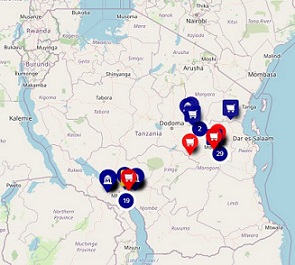Forest education and extension services.
Forestry education and extension services are among key elements in ensuring that forest and farm producers share and exchange knowledge and skills, learn and adopt new relevant skills.
MVIWATA’s role on forest and education and extension services dates back from the times when the organization was found up to now where the organization has grown to have membership in all parts of Tanzania. MVIWATA’s work has helped to bridge the extension gap in the country.
This presentation highlights some of the key areas of interventions and key areas in forestry education and extension services facilitated by MVIWATA.
Problem solving at local level.
Agricultural, environmental and some non- agricultural challenges and threats have been solved through this approach. In Mavala village, for example 50 acres of degraded land has been rehabilitated through forestry education.
Conservation of biodiversity
In some areas, the extension services from MVIWATA have managed to organize communities to conserve biodiversity through agro-ecology, agroforestry practices and local seed multiplication for seed banks establishment.
Provision of support services in agriculture
The organization of demonstration plots, and use of other extension methods in its networks, has managed MVIWATA and Non-MVIWATA members to acquire different support services like finance and market information.
Fighting climate change effects.
The forest education and extension services have managed to raise awareness on climate change and its effects and organize farmers in fight against the effects.
The role that MVIWATA plays in forest education and extension services.
- Training of trainers and others who later become community mobilizers in facilitating forest education and extension services.
- Providing platform for learning and testing knowledge. Both inherited local and new compatible knowledge, practices are tested and practiced.
- Provision of support services
Lessons learned from the ground.
- In most cases, there is little public investment in agriculture and thus very little support goes to the extension service and forest education.
- Recognition and protection of farmers’ knowledge, skills, seeds on farm and forest through policy processes.
- Majority of the population engaged in farm and forest activities thus it is possible to upscale the initiative to reach many more farmers.
- Tanzania being a multi-cultural country there is an opportunity of investing in farmers indigenous knowledge (through research and dissemination)







